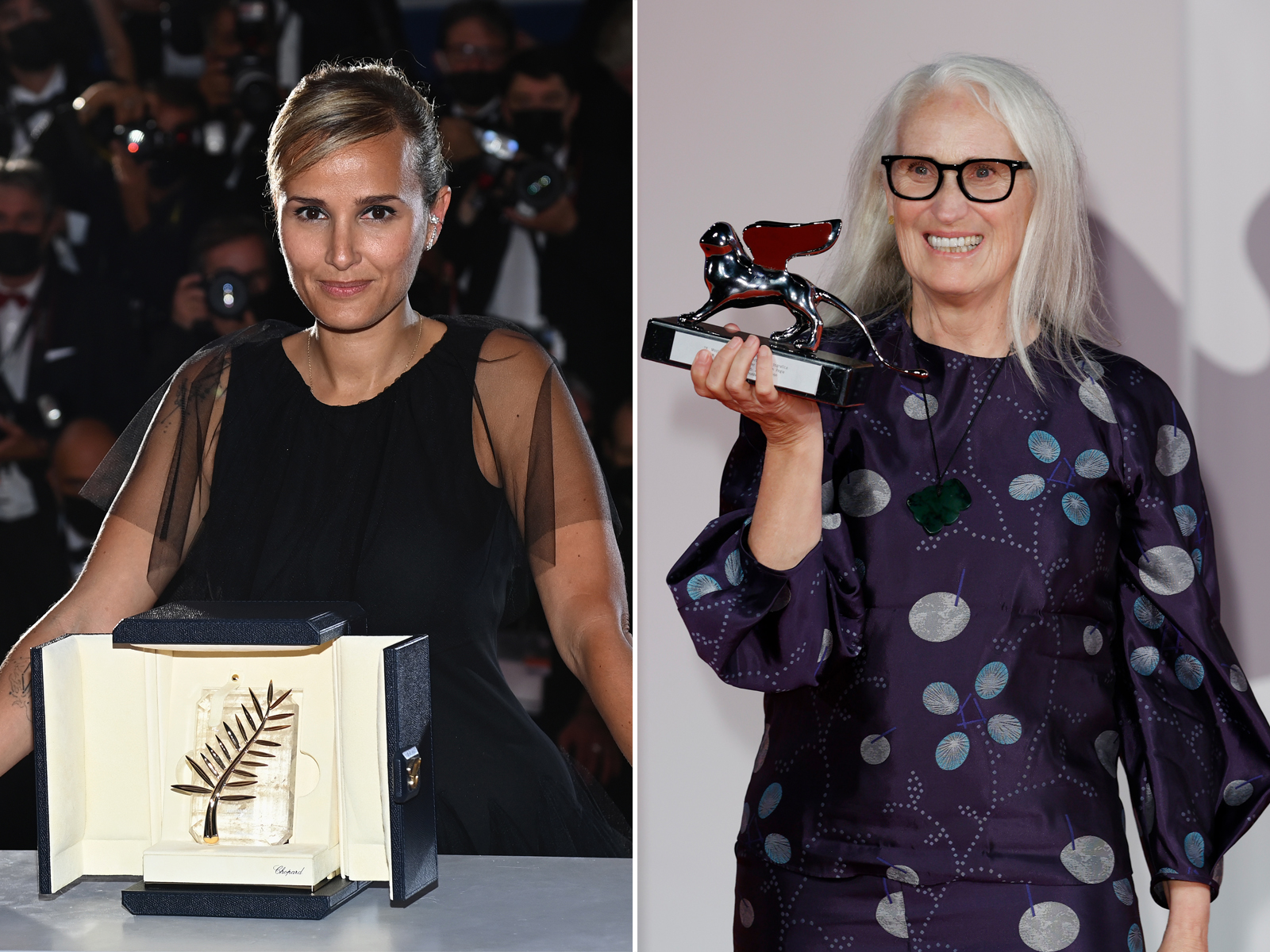
- Industry
Women on the March
As we observe International Women’s Day this March 8, as part of Women’s History Month, it seems like a good time to reflect on just how much progress women in Hollywood have made in the past year.
The answer today may be disappointing.
In 2022, the International Women’s Day hashtag was #BreakTheBias, with the IWD website declaring, “Whether deliberate or unconscious, bias makes it difficult for women to move ahead. Knowing that bias exists isn’t enough. Action is needed to level the playing field.”
This year’s hashtag, #EmbraceEquity, is “a focus on gender equity that needs to be part of every society’s DNA,” the website announces. “And it’s critical to understand the difference between equity and equality. IWD 2023’s theme aims to get the world talking about why “equal opportunities are no longer enough.”
But 2022 felt to many like two steps forward and one step back.
In 2021, two female directors won the top prizes at the most prestigious film festivals in the world. Titane’s French director, Julia Ducournau, became only the second female director ever to win the coveted Palme d’Or Award at the Cannes Film Festival, and, appropriately, Jane Campion – the first female Palme d’Or recipient for 1993’s The Piano – that year won the Venice Film Festival directing prize for The Power of the Dog.
In 2022, the count was zero.
In 2021, two women were nominated for the Best Director Oscar (Chloé Zhao, who won for Nomadland, and Emerald Fennell for Promising Young Woman) and three women were nominated for the Best Director Golden Globe (Zhao, Fennell and Regina King).
In 2022, Jane Campion was the sole female Best Director Oscar nominee for The Power of the Dog: she won the award, also winning the Golden Globe in a ceremony which also featured a second female nominee, Maggie Gyllenhaal, for The Lost Daughter.
In 2023, the count was back to zero for both awards, prompting the non-profit advocacy organization Women in Film to issue a statement following the Oscar nominations: “Once again, Academy voters have shown that they don’t value women’s voices, shutting us out of the Best Director nominations.”
But all is not lost, it seems, and, outside of the awards circuit, a seismic shift is working its way through Hollywood as actresses and female filmmakers are empowering themselves to take control of their own careers.
As Pilar Savone (who runs Kerry Washington’s Simpson Street Productions) told Vanity Fair, “When the #MeToo movement started, this group of actresses were all together, and they built something really unique. From that, friendships were born, and collaboration started to happen so it would be like, ‘Oh, let me call this person if we want to do that.’”
That movement not only empowered women to say, “Me Too,” but also created lasting friendships between women both in front of and behind the cameras, leading to strong professional relationships that allowed them to demand a seat at the table. What started as a trickle in the late 1990s and early 2000s, with production companies by Drew Barrymore, Salma Hayek and Charlize Theron, has now turned into a torrent of production shingles that have nothing to do with vanity.
Early adapters were Reese Witherspoon (Wild) and Nicole Kidman (Rabbit Hole), who teamed up with their own production companies to create the 2017 game-changing HBO limited series, Big Little Lies. Others now working behind the scenes to develop their own roles and maintaining control over their own projects include Regina King, Margot Robbie, Octavia Spencer, Jennifer Garner and Amy Adams.
Actress Elizabeth Banks used her clout as director of the Pitch Perfect movie franchise to make the leap and continue at the helm with more challenging films. The comedy thriller Cocaine Bear was directed by Banks and produced by her company, Brownstone Productions. “I don’t get to be the ingénue anymore, and that’s fine because I do interesting things with other women now instead,” she told Vanity Fair.
Everyone from Jennifer Garner to Jessica Biel is producing her own projects and it’s not just limited to film. Natasha Lyonne (Russian Doll) and Maya Rudolph (Saturday Night Live) founded their joint production company, Animal Pictures, in 2018 and both have now produced as well as starred in their current TV series: Poker Face (Lyonne), and Loot (Rudolph).
Head of Amazon Jennifer Salke serves on the Women in Film board and heads up their REFRAME program, an effort by a group of more than 70 women active in the entertainment industry at every level to increase the number of women of all backgrounds working in film, TV and media. According to their own commissioned study, despite the fact women now represent 51% of the U.S. population, only 31% of women hold key behind the scenes positions in television, and the number goes down to 20% in film.
“Our mission is to catalyze a culture shift, with a peer-to-peer approach, engaging decision makers from the top to ensure lasting gender parity at every level in Hollywood,” Salke says on the WIF website. “We believe inclusive representation in media can transform the world by allowing us to better understand and connect with one another.”
If many of these efforts are successful, there may be a future where hashtags won’t be necessary to support women rising up. They’ll already be there.

